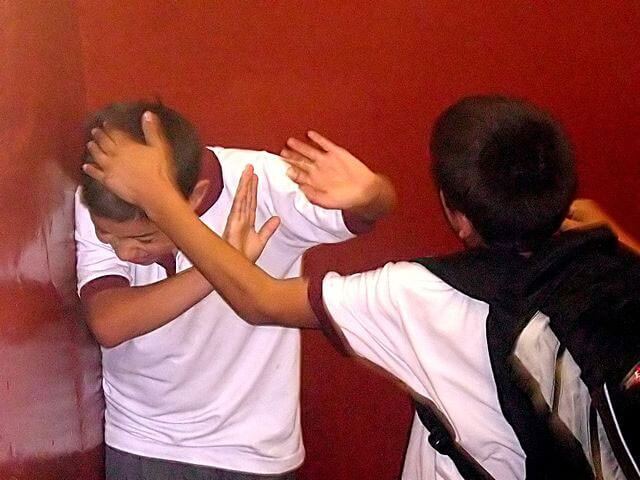A new University of California, Davis, study suggests that for most adolescents, becoming more popular both increases their risk of getting bullied and worsens the negative consequences of being victimized, perhaps because they feel they have “farther to fall.”
“In contrast to stereotypes of wallflowers as the sole targets of peer aggression, adolescents who are relatively popular are also at high risk of harassment, the invisible victims of school-based aggression,” said Robert Faris, associate professor of sociology at UC Davis and co-author of the study. Females and physically or socially vulnerable youth are also victimized at particularly high rates, according to the study, but most striking was the prevalence of relatively popular youth among the ranks of the victims.
The study found that the risk of being bullied increases as adolescents climb their school’s social ladder — up until they approach the very top, when the risk plummets. The students at the top, approximately the 5 percent most popular kids in school, sit just above the fray, possibly because their extremely high status puts them out of reach of any rivals.
“Casualties of Social Combat: School Networks of Peer Victimization and their Consequences” is published in the latest edition of the American Sociological Review (embargoed for release until 9 p.m. PDT March 31).
The study looked at the social networks of 4,000 youths in three counties in North Carolina. Study subjects from 19 schools, enrolled in grades eight through 10, were asked various questions and asked to name their five closest friends. From this, the authors were able to construct social networks resembling large webs of friendships with a dense hub in the center made up of the most popular students.
The study found victims of harassment suffered psychological, social and academic consequences, and they experienced high levels of anxiety, anger and depression.
“Most of these adverse consequences were worse for high-status targets, because while socially marginal youth are often brutally tormented, a single bullying event may be particularly psychologically and socially damaging for popular students, who feel that they have farther to fall,” Faris said.



u14068398
Victimization of a person, no matter their social status, is still a serious matter in most schools. Schools make an effort to stop victimization, though it is not always successful.
Popular teens,contrary to the stereotype can also be victimized as the pressure to stay at the top of the social ladder is increased significantly. Popular teens often feel pressure to succeed and so the effects of being a victim often hits them harder, though no less than regular teens.
The effects of bullying vary from person to person, but no matter your social status, the damage done by victimization is often irreversible and devastating. Bullying should be kept to a minimum in schools and in a community, and issues related to it should be addressed in a strict manner.